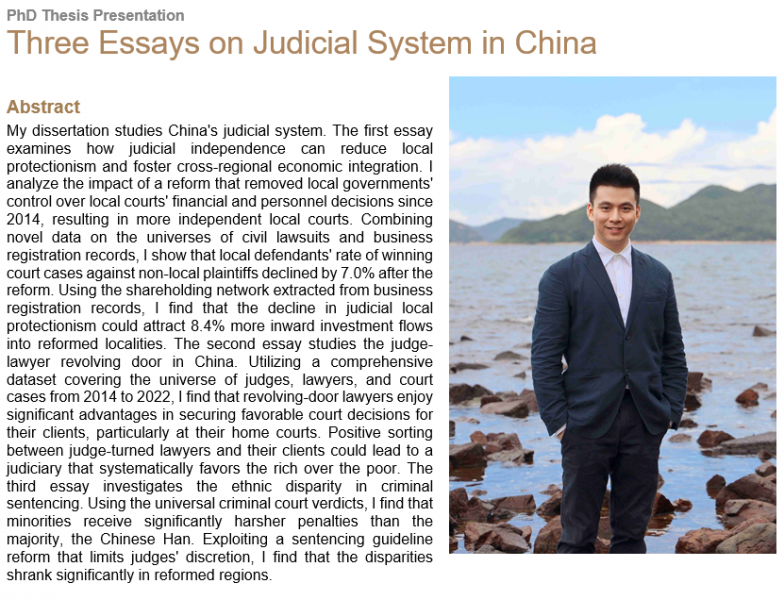Abstract
My dissertation studies China's judicial system. The first essay examines how judicial independence can reduce local protectionism and foster cross-regional economic integration. I analyze the impact of a reform that removed local governments' control over local courts' financial and personnel decisions since 2014, resulting in more independent local courts. Combining novel data on the universes of civil lawsuits and business registration records, I show that local defendants' rate of winning court cases against non-local plaintiffs declined by 7.0% after the reform. Using the shareholding network extracted from business registration records, I find that the decline in judicial local protectionism could attract 8.4% more inward investment flows into reformed localities. The second essay studies the judge-lawyer revolving door in China. Utilizing a comprehensive dataset covering the universe of judges, lawyers, and court cases from 2014 to 2022, I find that revolving-door lawyers enjoy significant advantages in securing favorable court decisions for their clients, particularly at their home courts. Positive sorting between judge-turned lawyers and their clients could lead to a judiciary that systematically favors the rich over the poor. The third essay investigates the ethnic disparity in criminal sentencing. Using the universal criminal court verdicts, I find that minorities receive significantly harsher penalties than the majority, the Chinese Han. Exploiting a sentencing guideline reform that limits judges' discretion, I find that the disparities shrank significantly in reformed regions.

